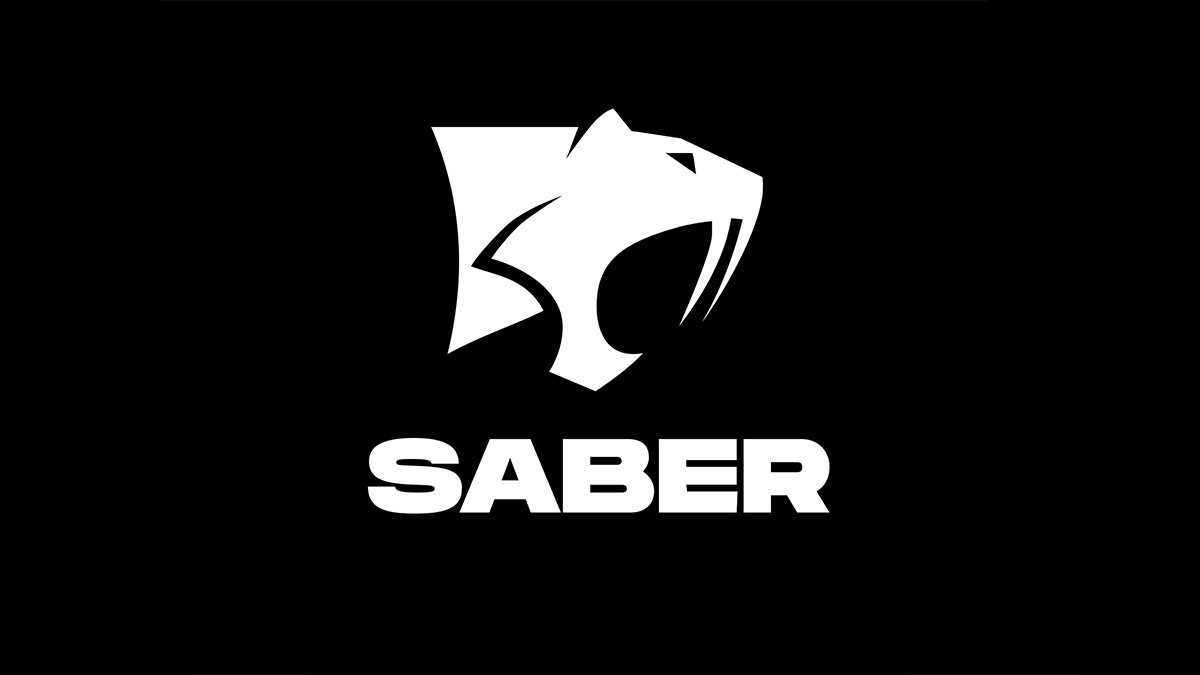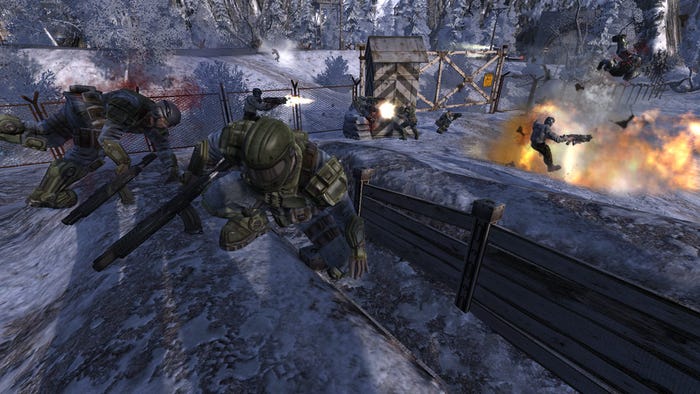Trending
Opinion: How will Project 2025 impact game developers?
The Heritage Foundation's manifesto for the possible next administration could do great harm to many, including large portions of the game development community.
From TimeShift to Space Marine 2, Saber Interactive's in-house technology and international operations are what's kept it alive and thriving, says CEO and co-founder Matthew Karch.

Saber Interactive is a studio finally entering the limelight. The company has hummed along in the relative background for 23 years, jumping back and forth between in-house game development and mixes of porting and co-development projects. It emerged from the implosion of Embracer Group relatively unscathed, and is known to be working on the remake of BioWare's Star Wars: The Knights of the Old Republic.
It's made those moves under the eye of a leadership team that includes CEO and co-founder Matthew Karch (a sometimes polarizing figure for his vocal defense of Embracer Group). Karch and fellow co-founders Andrey Iones and Anton Krupkin are an uncommon group of executives in the video game business in that they've stayed with the studio they've founded for nearly a quarter of a century.
In a moment of uncertainty, learning what studios can do to adapt to changing trends is important. We spoke with Karch about the past and future of Saber—and what other developers should learn from its success.
The first game from Saber Interactive was Will Rock, published by Ubisoft, but it's the time travel first-person shooter TimeShift that really exemplifies its development strategy.
Karch still has a soft spot for TimeShift—which didn't win over many critics but was a modest sales success, enough to keep the studio in business. He was the game's lead designer, and though he doesn't know the ins and outs of the company's 3D game engine Saber3D, he got his hands in the game enough to be able to ID areas where it wasn't working properly. "I wrote our first scripting language," he said. "I'm not going to pretend I can write a lot of real code...but I can look at a game and I can say 'this obvious thing isn't optimized,' or 'the shadow resolution is low.'"
He said he'd love to make a sequel. The rights landed at Activision Blizzard after it acquired Sierra Entertainment, which means they're now at Microsoft, which would need to sell back or license the franchise to the studio that made it.
Curious readers can still find the TimeShift postmortem lurking in our archives, authored by Karch.

Image via Saber Interactive/Activision.
Scan through that after-action report and you'll find Karch commenting that Saber couldn't have made TimeShift's time-reversal mechanic without relying on its own in-house engine—while also lamenting that the studio hadn't made use of third-party technologies.
Almost two decades later, Karch still sees Saber3D as the studio's secret weapon. "We control our own technology," he explained. "That's partially because our company was [co-founded] by engineers who think about things from a very, very technical perspective."
He's referring here to Anton Krupkin and Andrey Iones, Karch's friends and business partners who hailed from far across the Atlantic. Their maintenance of Saber3D allowed it to fuel games like World War Z and the upcoming Warhammer 40,000: Space Marine 2, which both take advantage of the engine's capabilities to push the number of units and quality of environments that can render onscreen.
"We use Unreal for certain games, but those are games that don't really require the same level of technical proficiency," he added, going so far as to say developers shook up by Unity's runtime fee debacle should feel comfortable pivoting to Epic Games' popular licensed engine.
With Iones, Krupkin, and other early employees still at the company (an ever-growing rarity), there's an immense amount of retained knowledge about Saber3D's ins and outs. There's a centralized core technology team that keeps it updated and humming along—both the front-end systems (named "Prose") and the back-end systems (called "Hydra") are under that team's purview.
When the company is working toward a major release like Space Marine 2, that team is solely dedicated toward supporting that game. "That's one of the reasons when we one of our own projects, we try to not release them at the same time," he said, noting the company will sometimes "hold" games to ensure the Saber3D developers aren't overstretched.
Just like Epic Games' work on Fortnite leads to improvements in Unreal Engine, Saber3D gets a bit better with each project. "If we want to rewrite a renderer, if we want to rewrite lighting—no matter what we want to do on the tech side, we can do it."
On TimeShift, the St. Petersburg-based Krupkin and Iones would lead principal development with the team in Russia, while Karch and other New Jersey-based colleagues juggled creative tasks and business relationships with their publisher in California. It was an early example of distributed development, one that's served served the studio in the years since.
The international operation was an "organic" phenomenon, Karch said, simply based on the home countries of the three men.
Those dual offices have since evolved into a sea of global studios (some built by Saber, others being subsidiaries absorbed from its divestment from Embracer Group). Saber isn't stationed in Russia anymore, as the country's invasion of Ukraine led to the last employees in the nation decamping in order to keep working with their Western colleagues, joining many other developers who've divested from the region.
In the TimeShift days, Karch said the team balanced American management, design, and cultural sensibilities with talented St. Petersburg-based developers taking ownership of developing and utilizing Saber3D.

The studio's expansion was "slow and deliberate," Karch said, and built off the principle of keeping projects in scope of what its in-house engine was capable of.
The division of labor across national borders raises an interesting question: as more studios turn towards international co-development partners to take advantage of lower labor costs in other regions, an uncomfortable dynamic sometimes emerges. In some of these relationships, game studios in the Western world will have creative ownership over a project, and the "grunt work" goes to the outsourced studios.
"That [dynamic] happens primarily when it's not organic," Karch said, explaining that now the technical and creative relationships between studios crisscross the globe. "Our lead designer on Space Marine 2, he's been with us about 15 years. He moved out of Russia, lives in Armenia, and has full ownership over the game. He works closely with one of our lead writers...who's based out of Liverpool" (near Warhammer license-holder Games Workshop).
He rattled off the other studios' locations in Portugal, Spain, Serbia, Estonia, and the United States. He'd called in from Nimble Giant Entertainment in Argentina. In each of those regions, he said that Saber "gives product ownership to [its teams]."
"I wish we'd made Helldivers 2," he lamented in an extended ramble about how streams of great games now pour out of Arrowhead Studios' native Sweden, or Belgium, where Baldur's Gate 3 developer Larian Studios is headquartered. "20 years ago, people would say they wouldn't trust Swedish developers. They didn't want to do anything if it wasn't based in North America." He said he's still surprised to hear colleagues from other major studios not wanting to develop a game unless it's based in California.
Saber Interactive now faces a tall task with the remake of Star Wars: Knights of the Old Republic. While the company's previous games appealed to more niche audiences, this game's dramatic development saga and fervent fanbase have made many lock eyes on the studio, salivating at any tidbit of news.
On paper it's a moment 20 years in the making. By patiently improving Saber3D and building a reputation with a library of modest games, Saber's arrived in a position that Aspyr may have rushed into too fast. If all goes well, Karch, Krupkin, and Iones' long bet will have paid off.
Of course, it's only in Star Wars that stories peak at big dramatic conclusions. Once the lights of the Old Republic fade, the studio will have to figure out if its fate still is about going slow and steady—or if such success means it's time to speed things up.
Karch (who expressed frustration in our call at Embracer's decision to grow too big too fast) probably won't want to steer that direction. But one way or another, game studios are at the whims of the market. All they can do is build sturdy ships that hopefully make it through wherever the winds take them.
You May Also Like